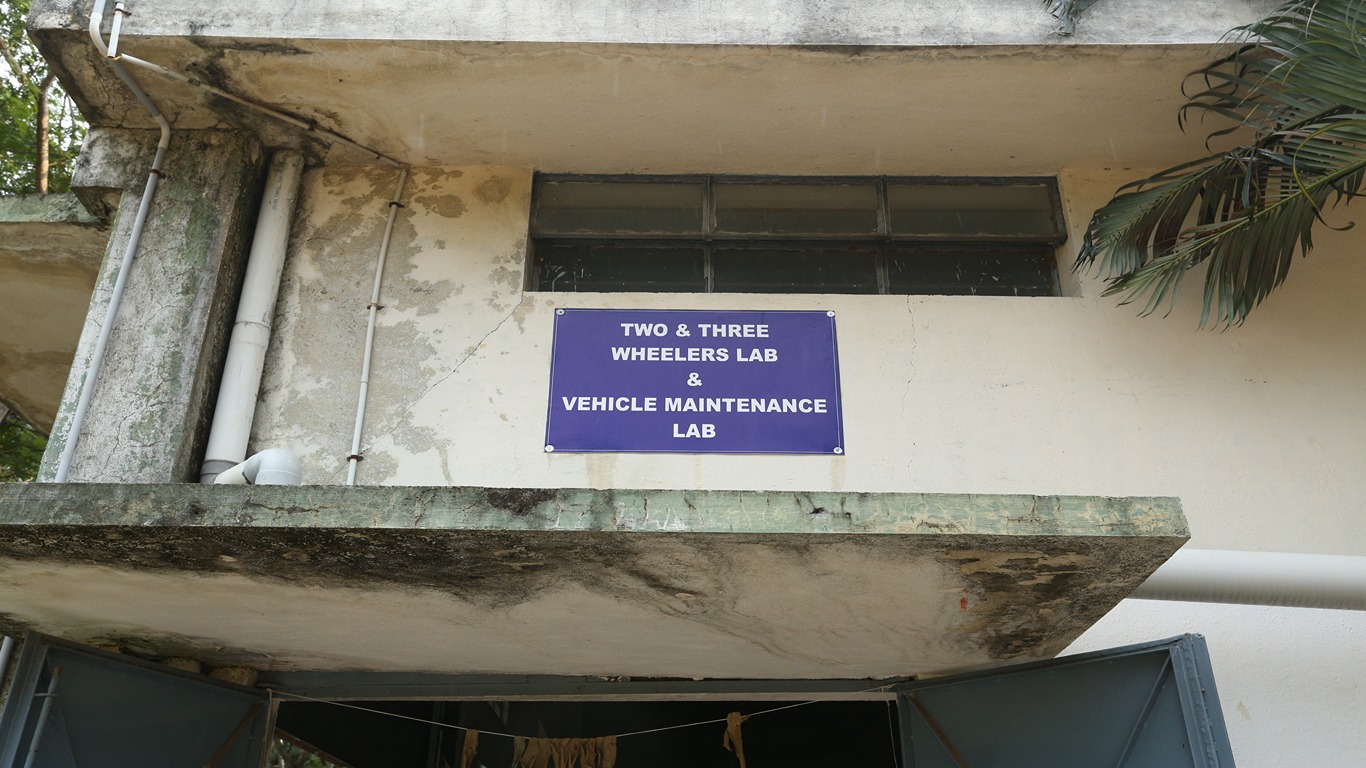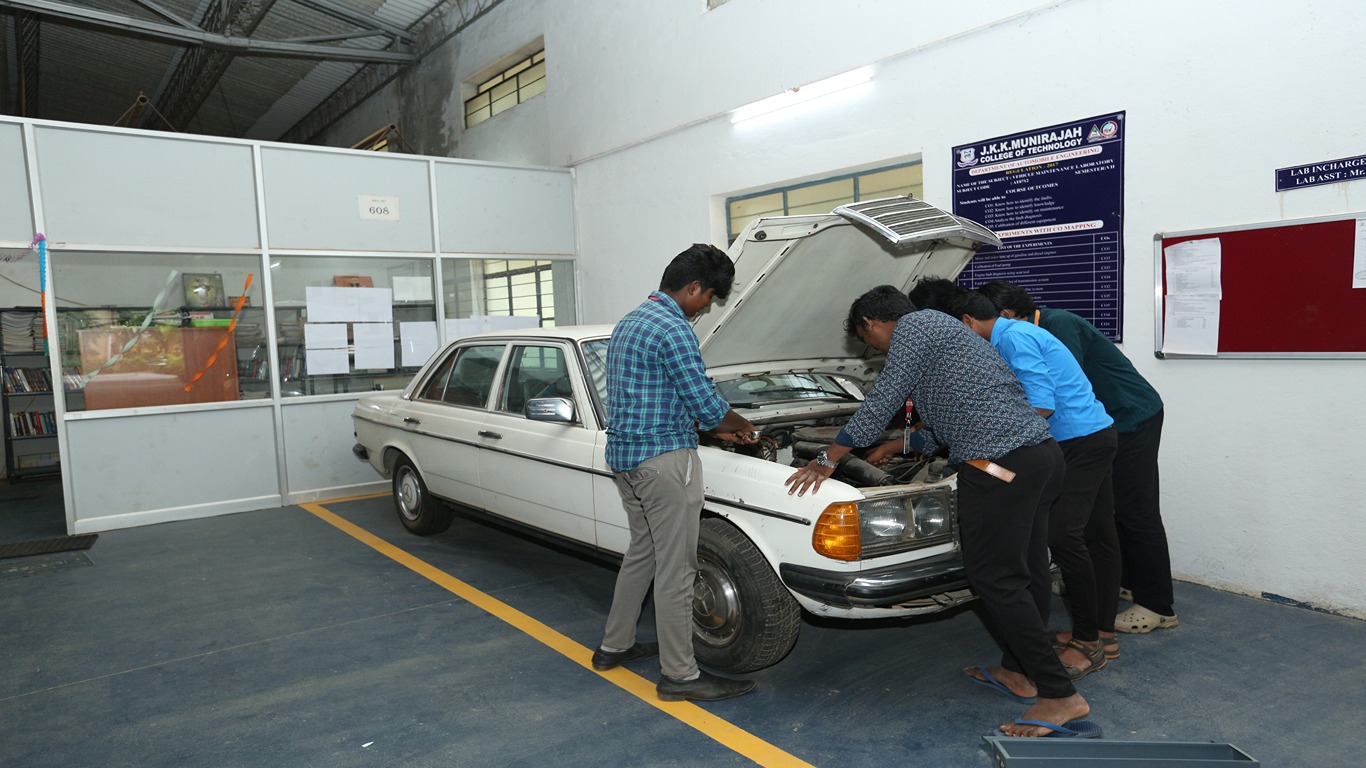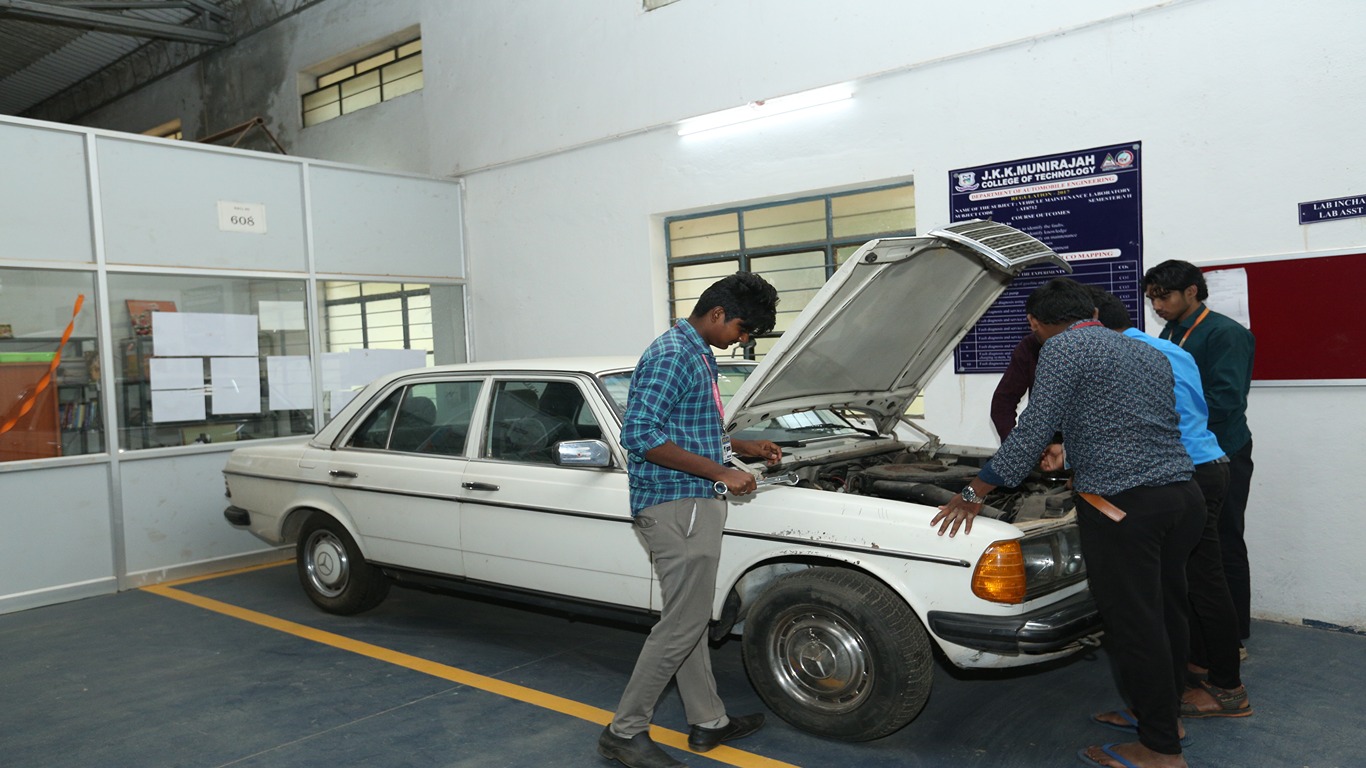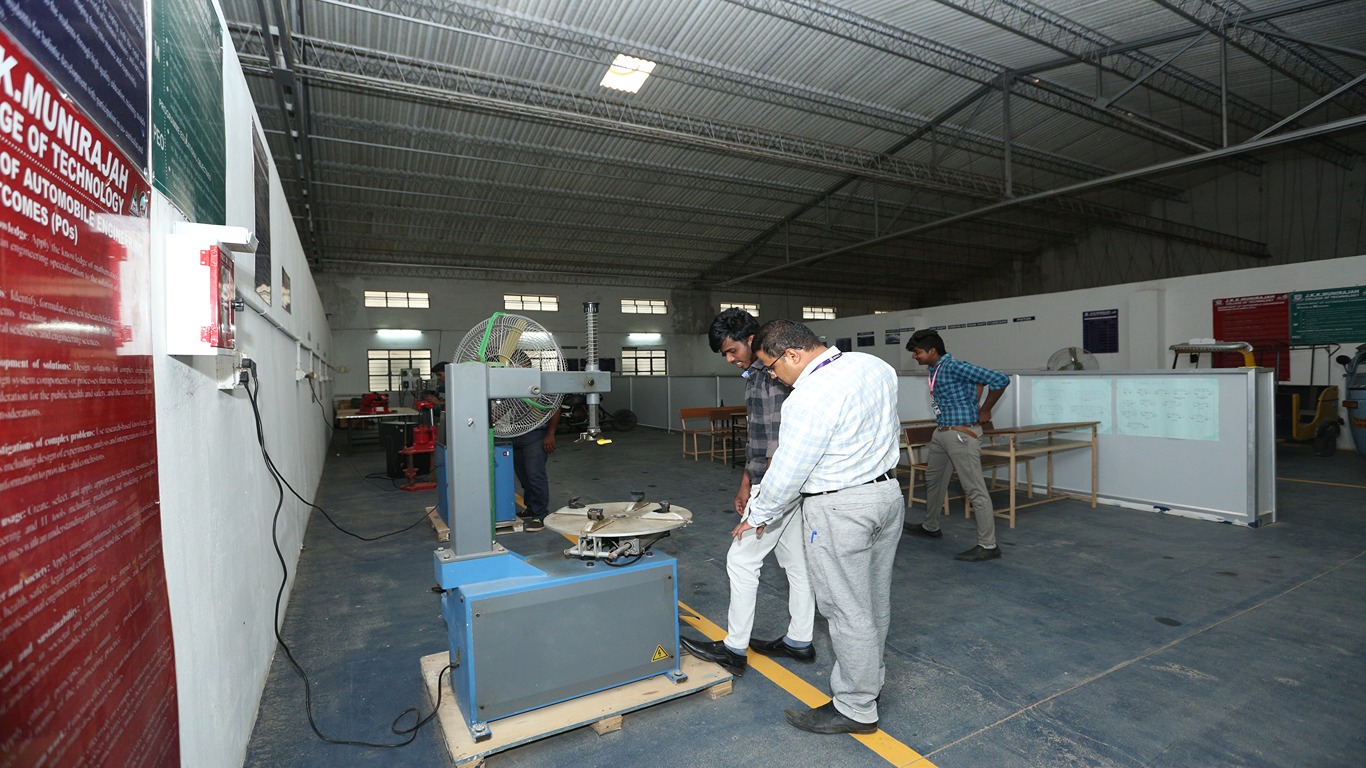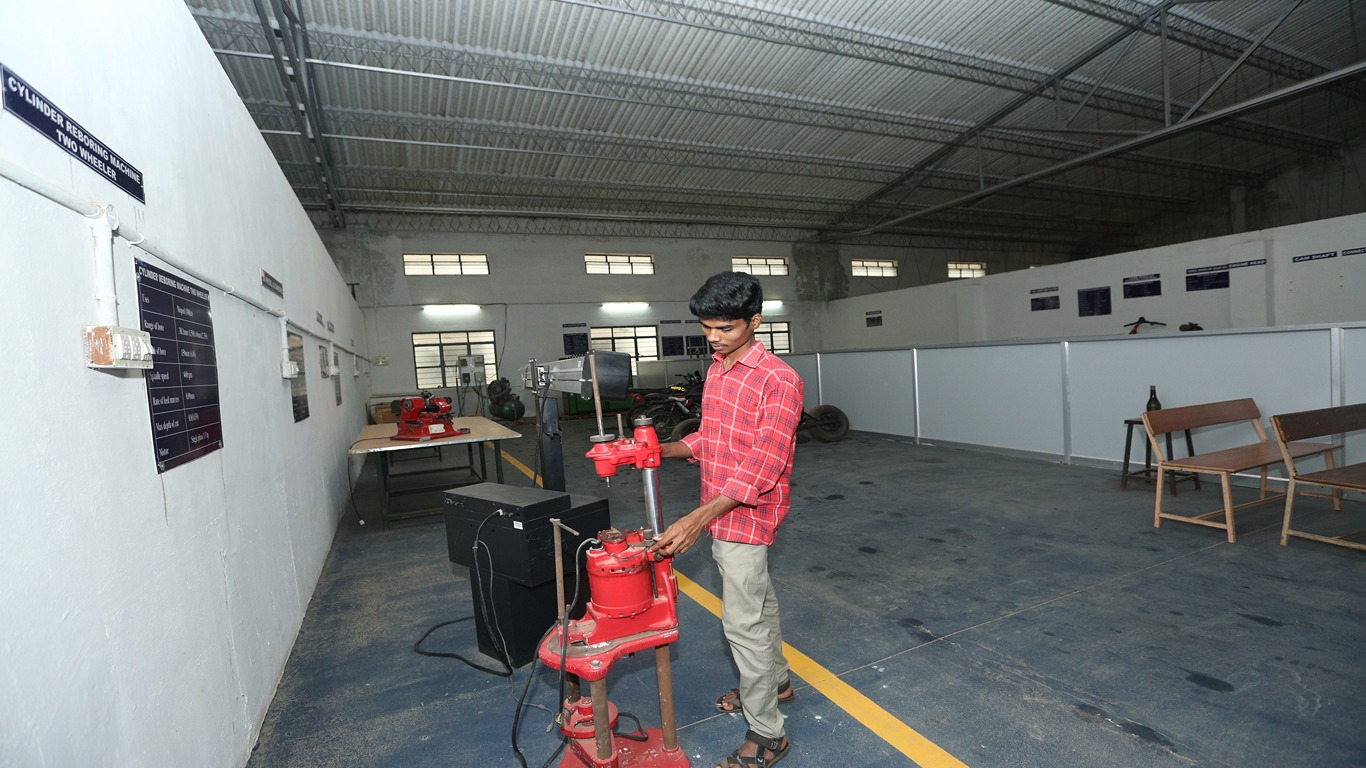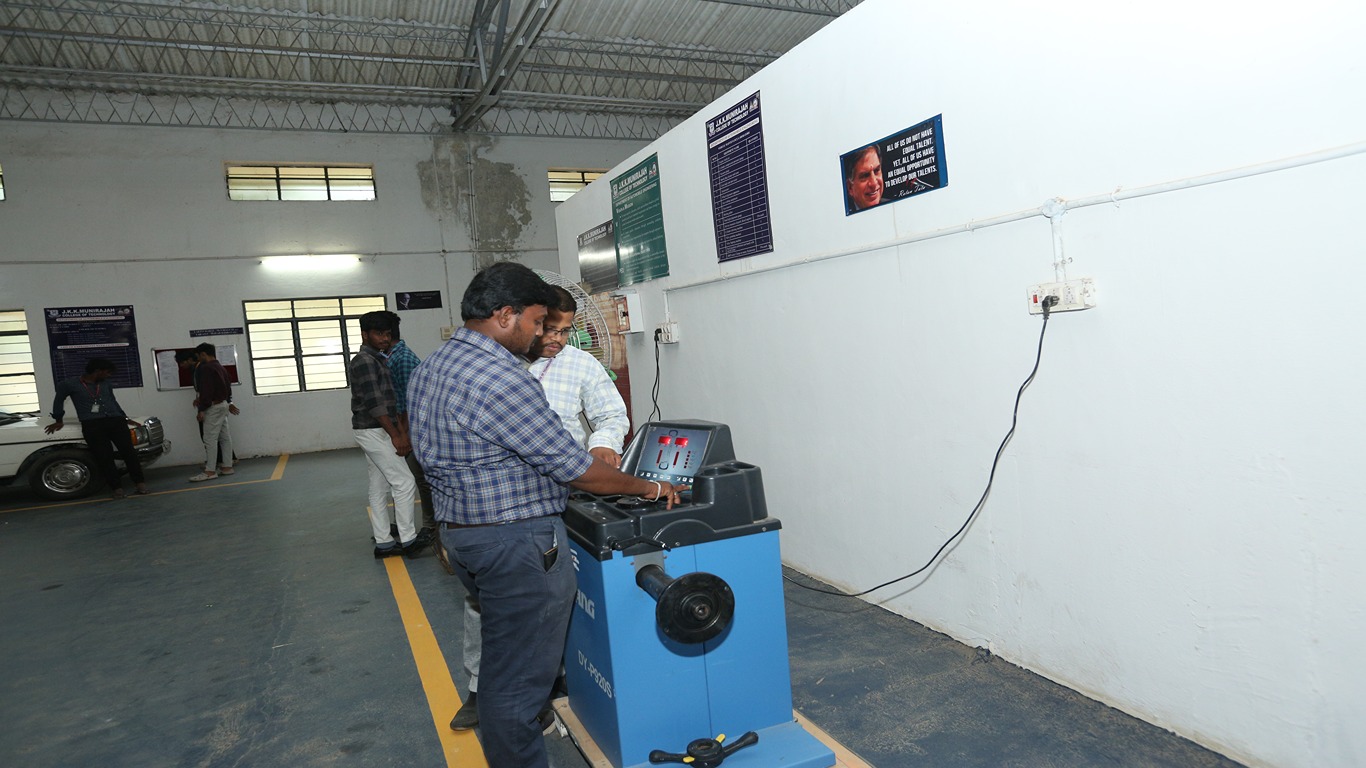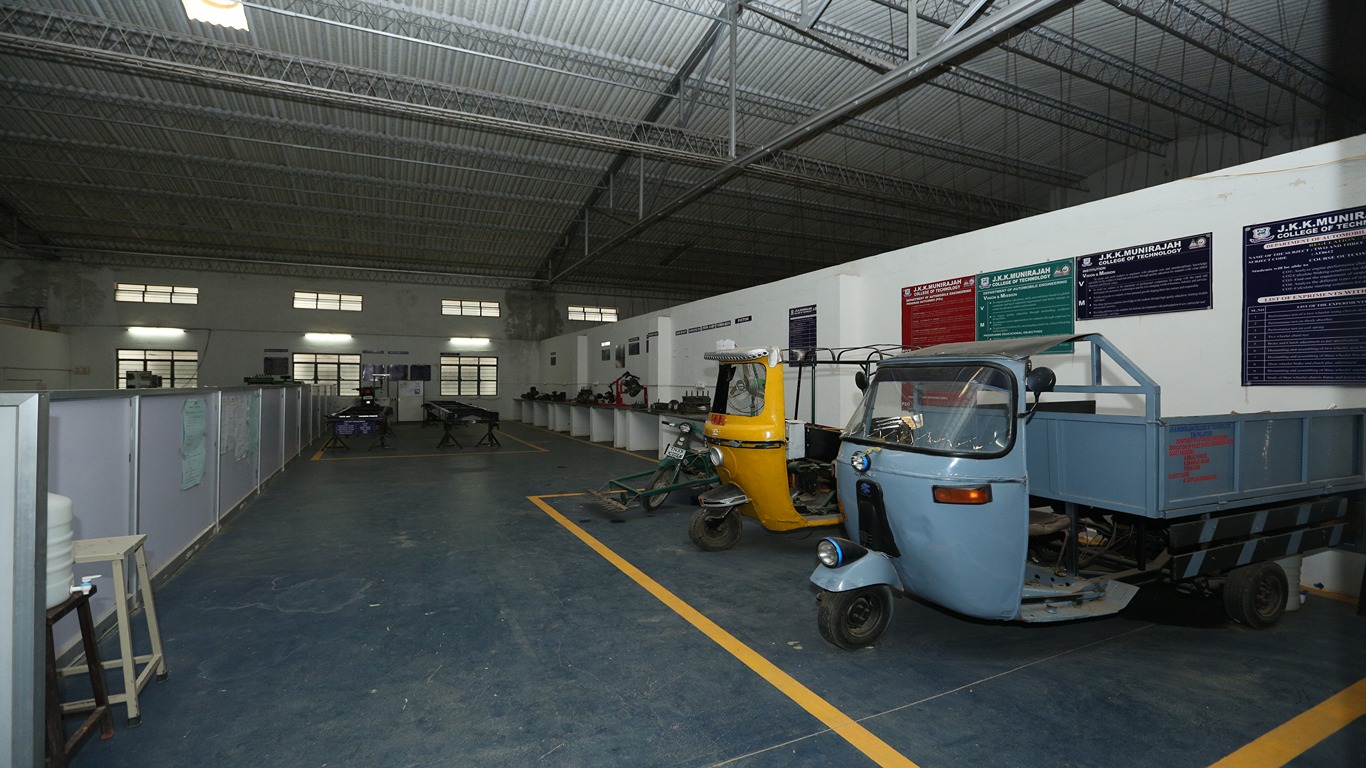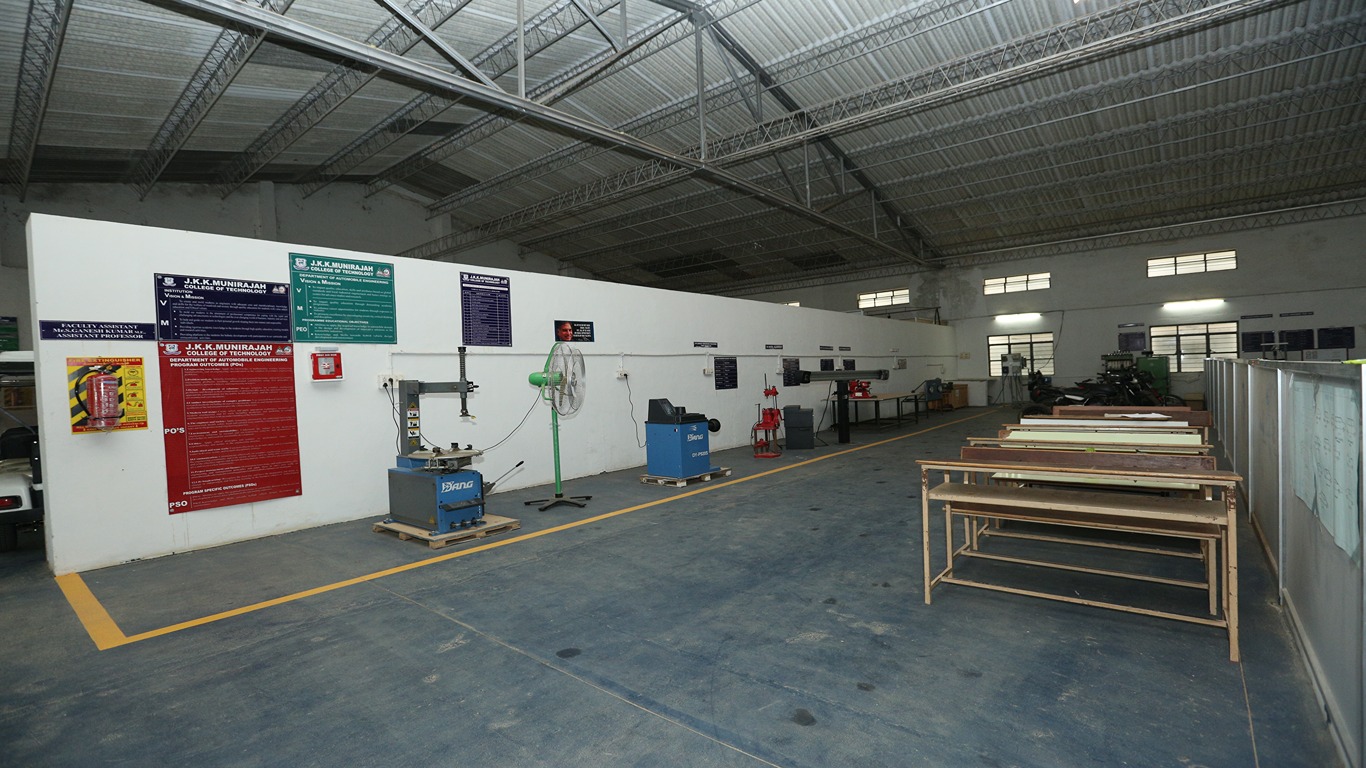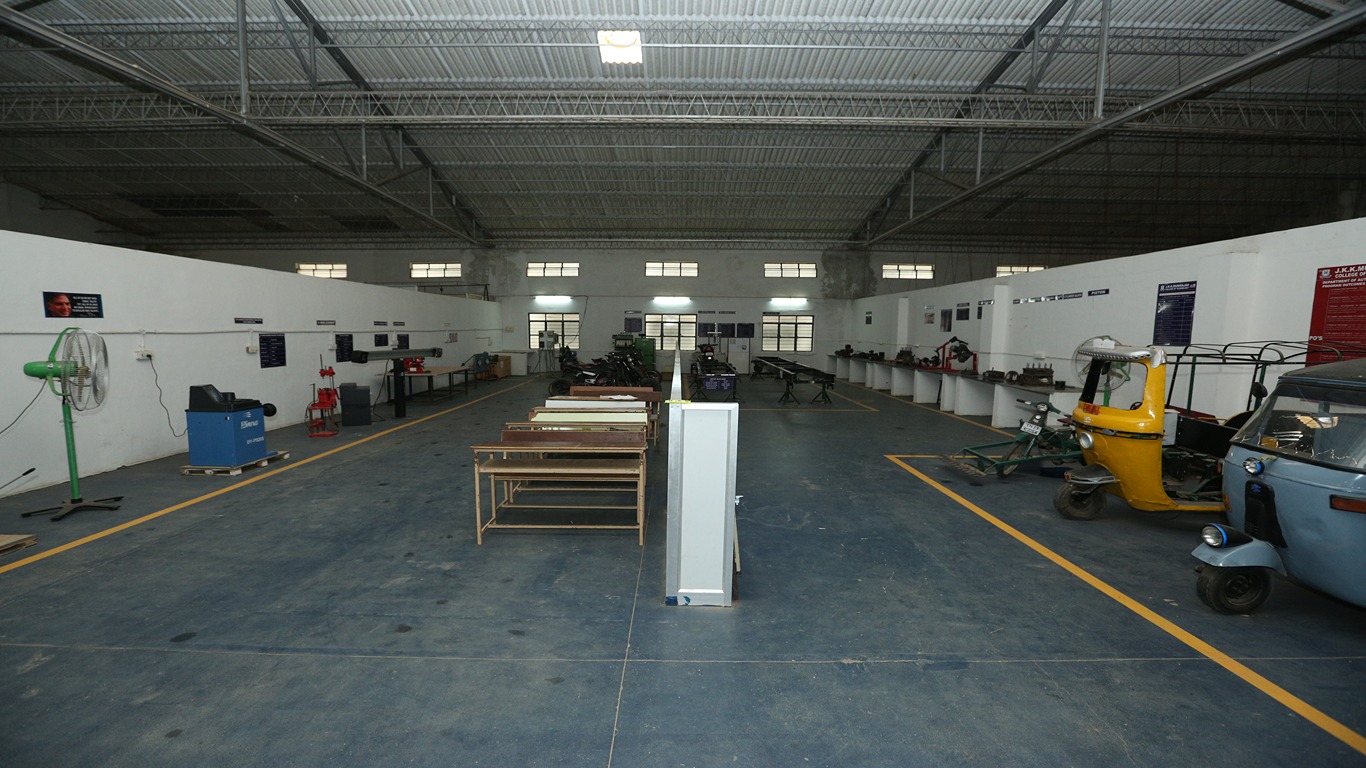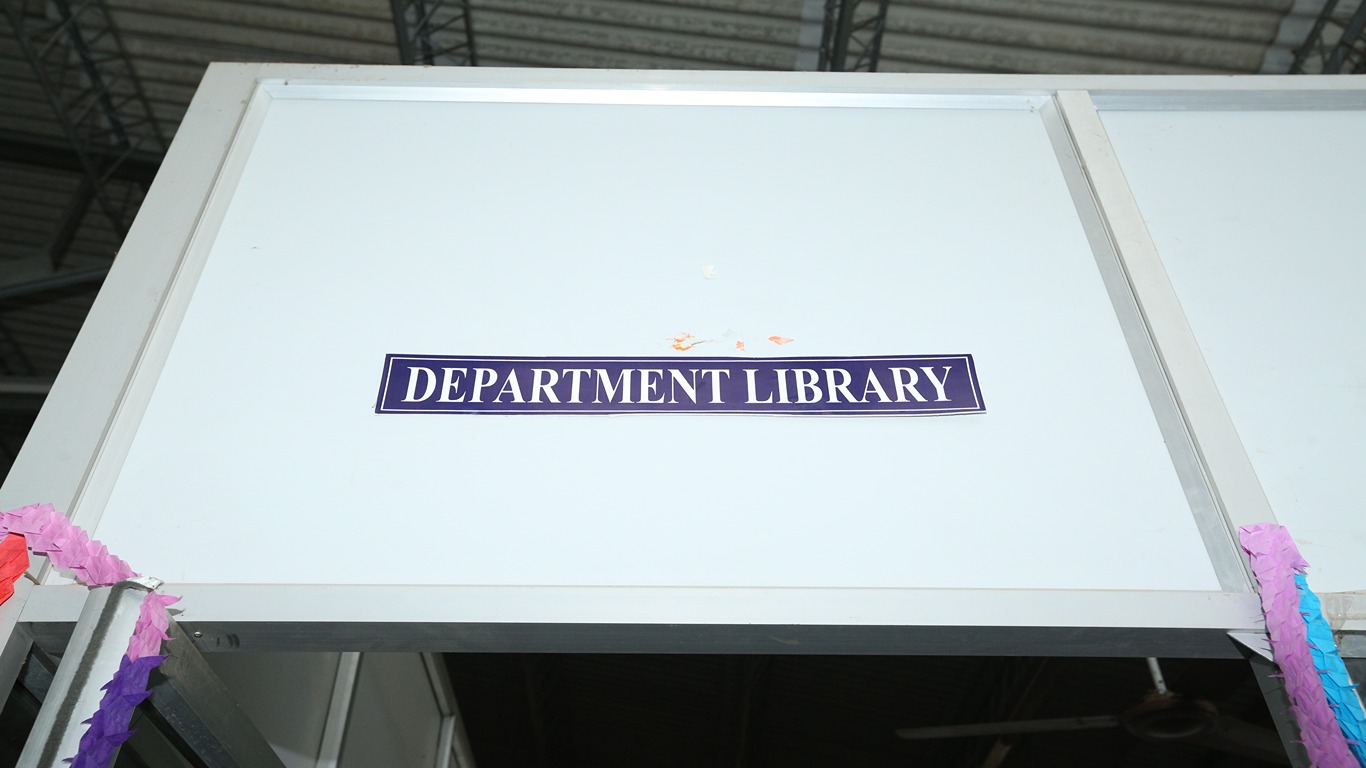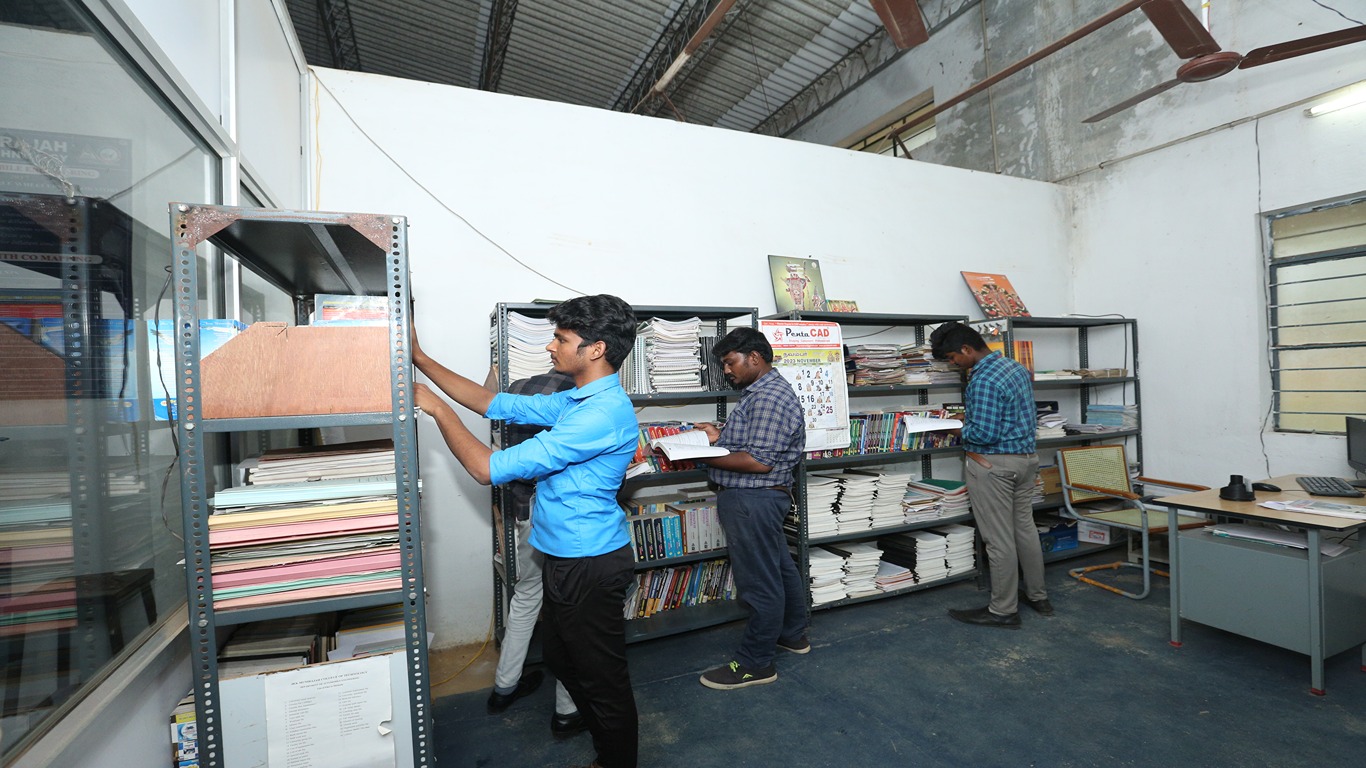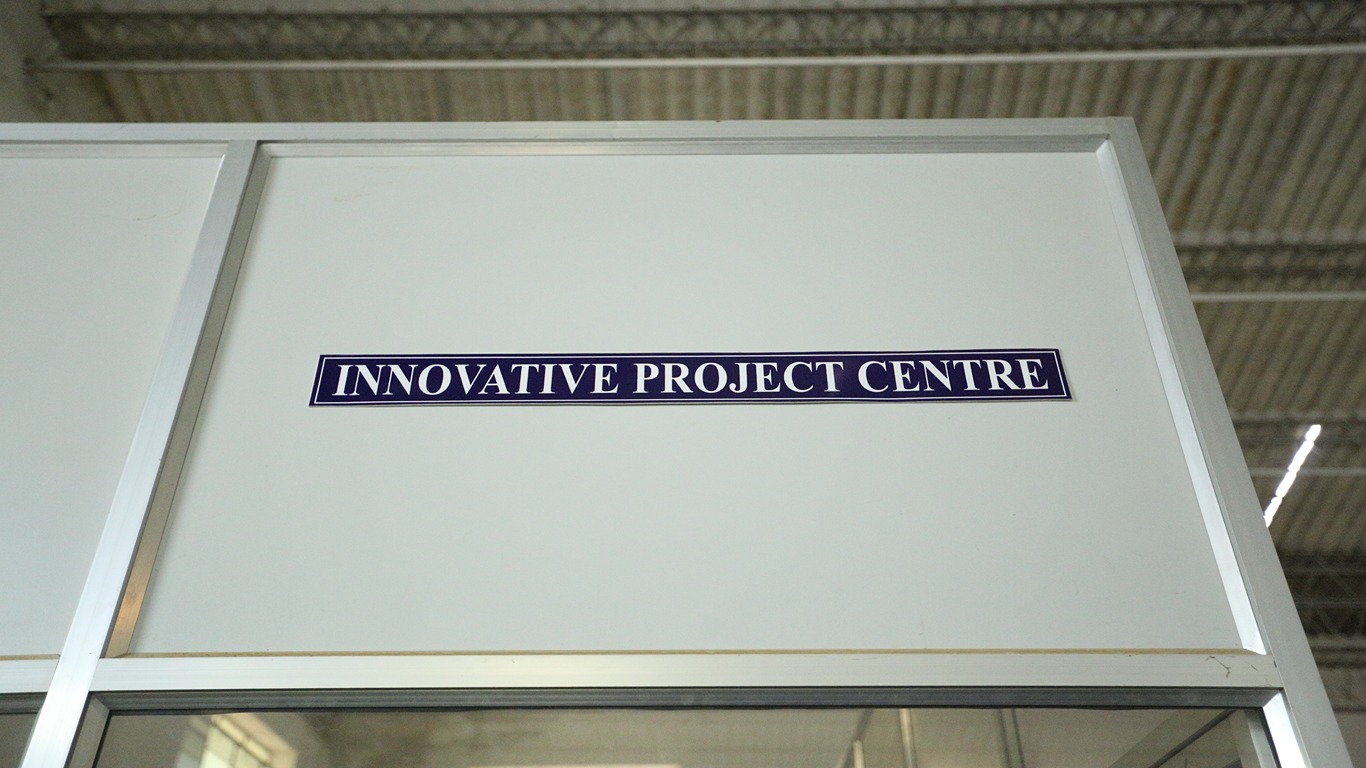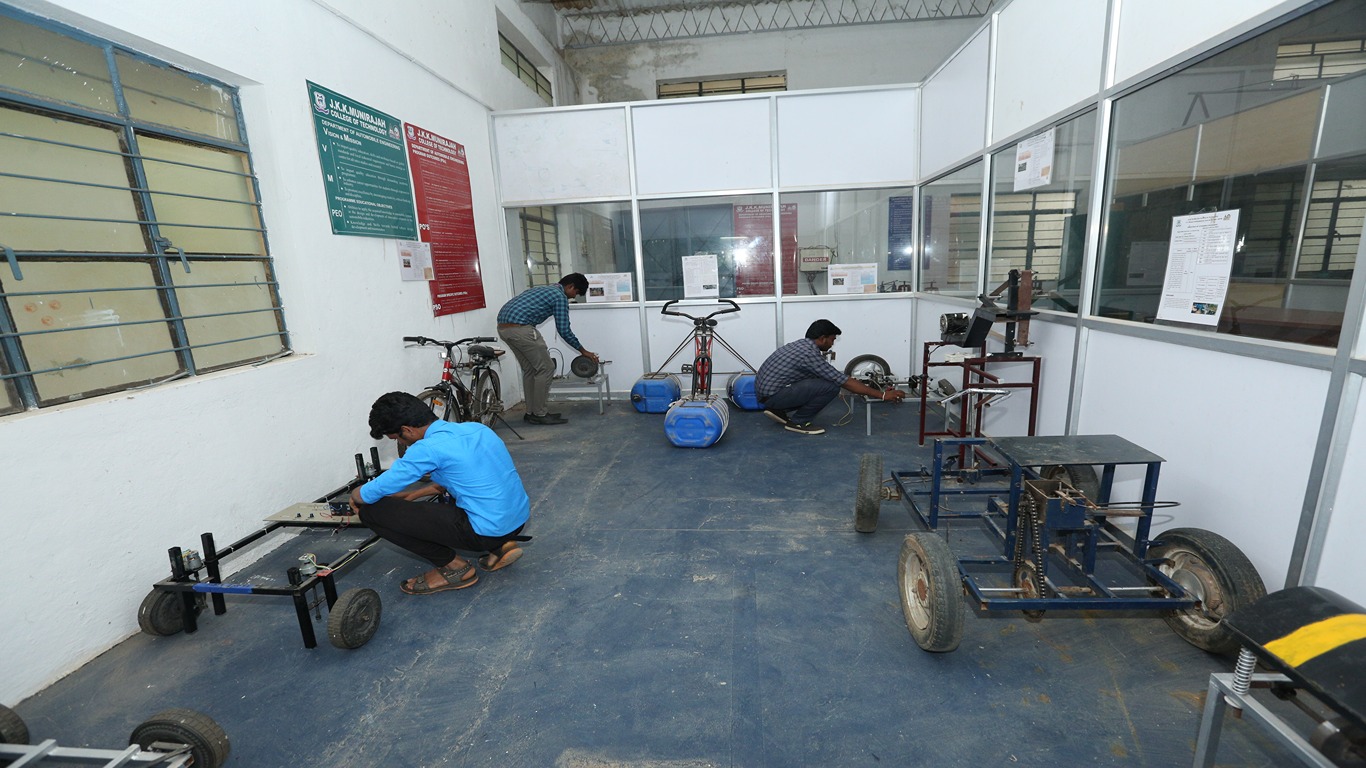Automobile Engineering
What is Automobile Engineering?
Automobile engineering is a branch of vehicle engineering. It comprises elements of software, mechanical, electric, safety, and electronic engineering, which are used on planning, designing, manufacturing, and upgradation of vehicles like cars, motorcycles, scooters, and more. The branch is also responsible for the modification of these vehicles.
Why should I study Automobile Engineering?
Automobile engineering provides a broad range of skills, from designing and testing engines to managing and optimizing production processes, that can be applied to many business ventures.
Current Year Intake: 30 Seats
Vision
To impart quality education, skills and attributes based on global standards and local industrial requirement and hence emerge as centre for advance studies and research.
Mission
i.To impart quality education through demanding academic programme.
ii.To enhance career opportunities for students through exposure to industry.
iii.To promote excellence by encouraging creativity, critical thinking and discipline.
iv. To inculcate sensitivity toward society and a respect for the environment.
PROGRAMME EDUCATIONAL OBJECTIVES (PEOs):
-
PEO1: Possess advanced knowledge and skills to diagnose and apply the concept of automotive systems and processes.
-
PEO2: Be able to design, fabricate and innovate in automobile domain, meeting the industrial challenges.
-
PEO3: Be able to play key role in automobile industry with good communication skills, ethics and contemporary knowledge and skills.
PROGRAMME SPECIFIC OUTCOMES (PSOs):
-
PSO1: Abilities to apply the acquired knowledge in automobile domain in the design and development of innovative solutions in the automobile industries.
-
PSO2: Knowledge and Skills towards hybrid vehicle design, development and maintenance.
PROGRAM OUTCOMES (POs):
- Engineering Knowledge: Apply the knowledge of mathematics, science, engineering fundamentals, and an engineering specialization to the solution of complex engineering problems.
- Problem Analysis: Identify, formulate, review research literature, and analyze complex engineering problems reaching substantiated conclusions using first principles of mathematics, natural sciences, and engineering sciences.
- Design / Development of Solutions: Design solutions for complex engineering problems and design system components or processes that meet the specified needs with appropriate consideration for the public health and safety, and the cultural, societal, and environmental considerations.
- Conduct Investigations of Complex Problems: Use research-based knowledge and research methods including design of experiments, analysis and interpretation of data, and synthesis of the information to provide valid conclusions.
- Modern Tool Usage: Create, select, and apply appropriate techniques, resources, and modern engineering and IT tools including prediction and modeling to complex engineering activities with an understanding of the limitations.
- The Engineer and Society: Apply reasoning informed by the contextual knowledge to assess societal, health, safety, legal and cultural issues and the consequent responsibilities relevant to the professional engineering practice.
- Environment and Sustainability: Understand the impact of the professional engineering solutions in societal and environmental contexts, and demonstrate the knowledge of, and need for sustainable development.
- Ethics: Apply ethical principles and commit to professional ethics and responsibilities and norms of the engineering practice.
- Individual and Team Work: Function effectively as an individual, and as a member or leader in diverse teams, and in multidisciplinary settings.
- Communication: Communicate effectively on complex engineering activities with the engineering community and with society at large, such as, being able to comprehend and write effective reports and design documentation, make effective presentations, and give and receive clear instructions.
- Project Management and Finance: Demonstrate knowledge and understanding of the engineering and management principles and apply these to one’s own work, as a member and leader in a team, to manage projects and in multidisciplinary environments.
- Life-Long Learning: Recognize the need for, and have the preparation and ability to engage in independent and lifelong learning in the broadest context of technological change.
| S.No. | Faculty Name | Qualification & Dept. | Designation | Experience |
|---|---|---|---|---|
| 1 | Mr.MAGESH V | M.E., / AUTO | HEAD OF THE DEPARTMENT | 10 Years |
| 2 | Mr.ARUL MURUGAN P | M.E., / AUTO | ASSISTANT PROFESSOR | 8 Years |
| 3 | Mr.ESWARAN P | M.E., / AUTO | ASSISTANT PROFESSOR | 8 Years |
| 4 | Mr.GANESH KUMAR S | M.E., / AUTO | ASSISTANT PROFESSOR | 7 Years |
| 5 | Mr.GOPALAKRISHNAN K | M.E., / AUTO | ASSISTANT PROFESSOR | 6 Years |

